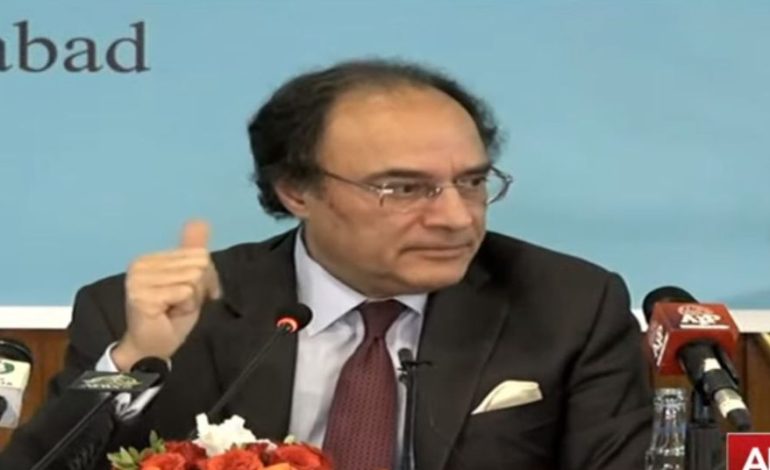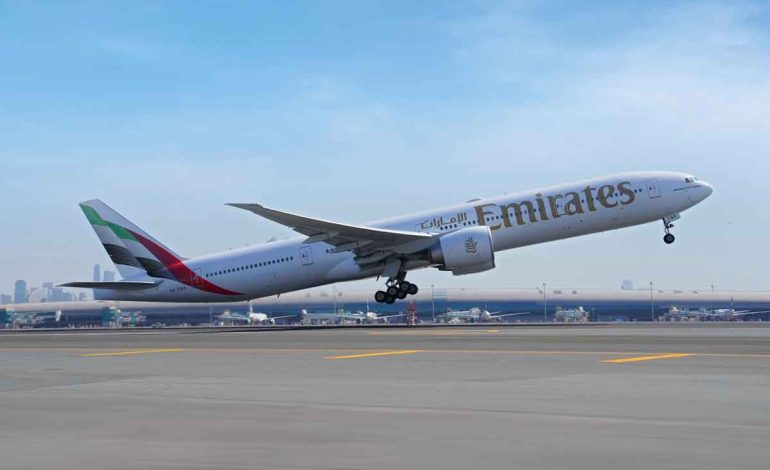
Pakistan Prioritizes Regional Trade and Economic Reforms: Finance Minister Aurangzeb Highlights Key Initiatives
WASHINGTON: Finance Minister Muhammad Aurangzeb emphasized the importance of regional trade, stating that avoiding trade with neighboring countries, especially India, “doesn’t make sense.” Speaking at a press conference at the Pakistan Embassy in Washington, Aurangzeb clarified that while political or geopolitical concerns may influence trade decisions, Pakistan is actively seeking engagement with its neighbors.
Highlighting Pakistan’s commitment to regional partnerships, he cited recent attendance at the Shanghai Cooperation Organisation (SCO) conference and Pakistan’s interest in joining the BRICS alliance. “We aim to broaden trade through regional corridors similar to those in Southeast Asia and SAARC nations,” he noted.
Aurangzeb has been in Washington for the annual meetings with the International Monetary Fund (IMF) and the World Bank Group. He shared that international financial leaders, ratings agencies, and US investors have acknowledged Pakistan’s economic improvements, including a rise in foreign reserves to over $11 billion and a reduction in inflation due to government reforms. Interest from US investors has also been strong, and international lenders are backing a one-window approval process for projects in Pakistan.
World Bank Grant for Capacity-Building Initiatives
Aurangzeb announced that the World Bank will provide Pakistan with a grant—not a loan—for various capacity-building projects. The World Bank’s International Development Association (IDA) offers grants to countries at higher risk of debt distress, with no repayment required on grants. Pakistan is also entering a ten-year Country Partnership Agreement with the World Bank to address climate change, child stunting, and education access for out-of-school children.
Climate Resilience Financing with IMF
The minister revealed that discussions are ongoing with the IMF for climate resilience funding, seeking a significant investment of at least one billion dollars. Aurangzeb also highlighted Pakistan’s rapidly growing population as a primary challenge to economic stability, noting the pressure it places on resources, employment, and per capita income.
Tax Reforms and Collection Goals
The finance minister stressed the need for fundamental changes in Pakistan’s economy, shifting from an import-oriented to an export-oriented model. He emphasized expanding the tax net, utilizing a database to identify tax evaders. A new law will soon prevent non-filers from purchasing cars and properties, aiming to raise the tax-to-GDP ratio from 9% to 13% with reforms at the Federal Board of Revenue (FBR).
Privatisation of State-Owned Enterprises
Aurangzeb provided updates on the privatisation of state-owned enterprises (SOEs), including profitable entities like State Life Insurance Corporation. “If a private sector can run it, why keep it public?” he questioned. He confirmed that privatisation of Pakistan International Airlines (PIA) and Islamabad airport is underway, with potential privatisation of Lahore and Karachi airports also in consideration, aiming for a decisive outcome by November.
Through these reforms and engagements, Aurangzeb is pushing for a more resilient economy, greater regional trade, and sustained growth for Pakistan.





